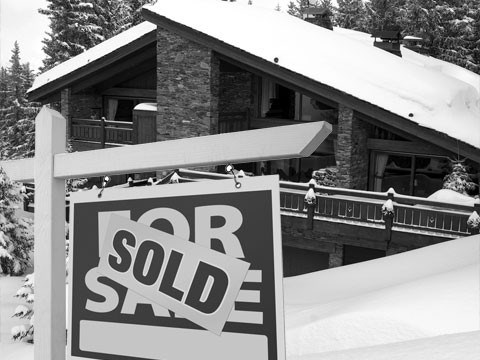The suggestion that exposure from the Winter Olympics would boost foreign ownership of real estate in Whistler has become something of a lark over the past year.
Anecdotal information provided by local realtors indicates they had no illusions that the Games would impact the volume of sales and the idea has been further debunked by a report recently released by Landcor Data Corporation.
"Whistler: Foreign Ownership by the Numbers" draws on a summary of all properties listed in the BC Assessment Authority (BCAA) database. It shows a trend away from international ownership despite pre-Olympic rhetoric that the Games would increase it. A local realtor said that the molasses pace of international buying activity has little to do with the Games and everything to do with the global recession.
"I think there was an expectation among the lay people that the increased awareness due to the Olympics would lead to an immediate impact on real estate sales, and that did not happen," said Whistler Real Estate Company agent and long time local Pat Kelly. "From my perspective as a professional in the business, that was not an expectation I had. Our research on Olympic events is that the period prior, the period during, and the Olympic Hangover - the period following the Olympics - are not going to lead to an immediate surge in value or interest in real estate."
Landcor's data is muddied by the BCAA's voluntary property registration forms, which can be sidestepped by privacy-seeking owners. For example, only six owners from the People's Republic of China show up in the report, though information from local realtors indicate more than that exist. Despite the inconsistencies, the numbers in Landcor's report show a slow move away from foreign ownership, down 6.2 per cent in 2009 from 2005's 1,534 residential titles registered by foreign addresses. One year after the Olympics, non-Canadians, the bulk of who are American, registered 1,434 titles.
"Today, Americans own 883 homes or 9.9 per cent of all Whistler residential and 61.57 per cent of that diminished foreign cohort of 1,434 owners. The assessed value of American/Whistler homes has eased to $834.60 million (down from $866.59 million in July 2010) or 53.6 per cent of the shrunken $1.556 billion foreign residential ownership," reads the report, which counted 158 titles owned by British, 161 titles owned by Hong Kong, 16 titles owned by Mexicans, and 11 titles owned by Bermudians.
From an American point of view, a strong Canadian dollar has made the cost of owning a second home in Whistler more prohibitive, though Kelly said that most international buyers from outside of the Pacific Northwest aren't concerned with cost.
"I think that to some extent the international market is more focused on the higher end, they will consider a more expensive property for obvious reasons," he said, adding that most of that interest lies in managed properties close to amenities and ski lifts.
"We are still seeing some Americans but not in the numbers we saw four or five years ago when the dollar was at 65 cents. We are seeing a higher number of American sellers because the exchange rate is working in their favour so they're making some money in exchange if they're not making money on price."
Barbara and Bill Norman of Washington State recently decided to put their large Whistler home on the market after 10 years of living part-time in the community.
Their reasons for selling are practical - their kids are mostly grown and unable to visit as much and the house is too big for the two of them, but it was stringent residency laws that ultimately forced their hand.
"The problem with the fact that we are not Canadians is that we can only be up here one day less than six months per year," said Barbara, who along with her husband is a cheerful, active member of the Whistler community
"If we could be up here year round, yes, we would stay here in a minute. But the fact that we are restricted means that we have to have another house and what we'd like to do at this point and time in our lives is downsize to just one place and not have to have two.
"The other thing is the fact that the Canadian dollar is doing so well and is at par with the U.S. It makes running this house that much more expensive for us so we're looking at all that and saying, 'We love it here, this is my happy place but at the same time there are a lot of happy places in the world and now may be the time to take advantage of the market and see what we can do and maybe find another happy place.'"




